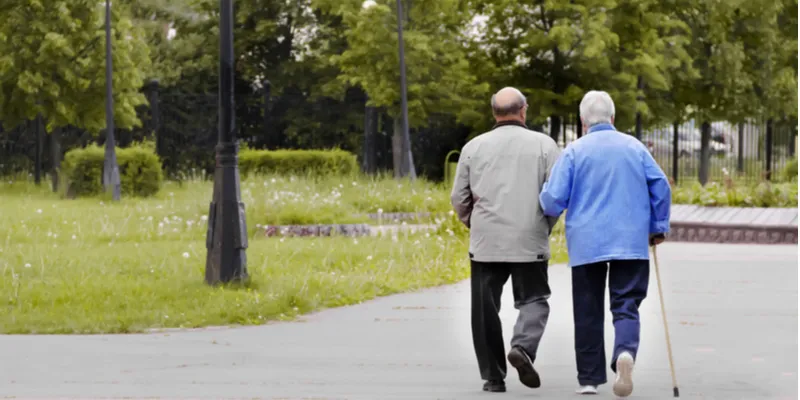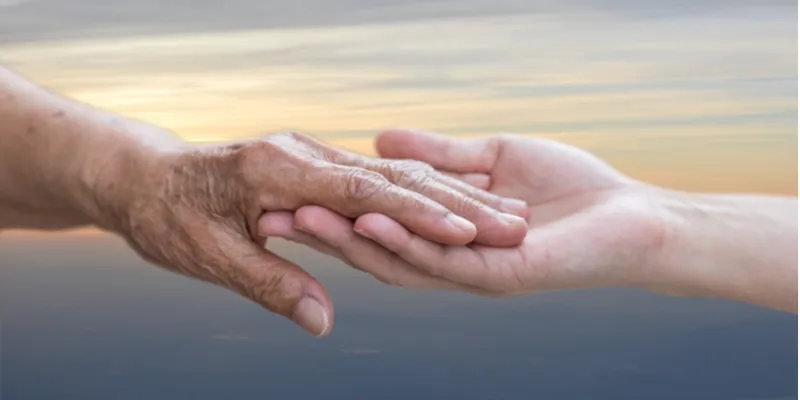Over 65 by 2050: As the world ages, here’s how to care for senior citizens on International Day of Older Persons
The global average life expectancy has risen significantly and older folk do not like to be dependent anymore. On International Day of Older Persons, Meena Ganesh, Co-Founder, Portea Medical, a healthcare brand which offers elder care, has suggestions on how to look after senior citizens
The world is ageing fast. According to recent data from the United Nations, one-sixth of the world population will be over 65 by 2050.
Given the tremendous advancements in the field of medicine leading to better diagnosis and treatment and a more health-conscious population that pays more attention to diet and nutrition, the global average life expectancy stands at 72 years at birth.

People are living longer nowadays and do not want to lose their independence
Life expectancy in most of the senior segments has also gone up significantly in the last decade or so. An inevitable outcome of this increased longevity is that these added years are the very ones that also bring a body that is prone to various ailments and diseases.
And in our fast-paced life, knowingly or unknowingly, we leave our elderly alone at home, yearning for our time, affection, care and support. While older people do not willingly submit themselves to becoming dependents, somewhere along the way, the intrinsic Indian culture of taking care of our elders in the family is fading away.
Be ready to offer support
Ageing is nature’s way of bringing life full circle. With age, older people become more and more like children and require constant support, care and attention and even daily chores become arduous tasks.
The body may also be overwhelmed by many problems such as joint pain, lack of strength in muscles, loss of vision and hearing, weakening bladder, lowered immunity, etc. However, unlike in their infancy, the elderly may not have the same support system surrounding them to tend to their daily needs. This fading independence and feeling of being considered a burden can take a toll on them, mentally and physically.
The unfortunate contradiction of this situation is that while we romanticise the pains and pleasures of child-rearing as one of the most important commitments we can take upon, we fail to extend this attitude towards simple human services for our elders. It may well be a symptom of our changing times.
Families have become more disjointed and nuclear. We can no longer rely on the support of extended family members like aunts, uncles and cousins by default, which further exacerbates the possible neglect of our elders.
Social discrimination and neglect are other pain points that prevent elders from living their life with dignity.
Make plans for the future

Make sure older folk are safe and looked after well
The onset of lifestyle diseases is now also much earlier as compared to a few decades ago. While one-third of the Indian population suffers from at least one lifestyle disease such as hypertension, diabetes, thyroid or high cholesterol, it is not surprising for the elderly to have multiple chronic ailments.
These ailments often require integrated and specialised care rather than just stand-alone treatment for one particular symptom. Most of the ailments that afflict the elderly are lifelong and require continued physical, emotional and mental support along with primary medical care.
As a society, we are ill-equipped to provide and adapt to such specialised extended care options. Despite being a very real and massive challenge, the growth in the population of older citizens is also an opportunity; one that can benefit them the most.
There is a need for strategic planning and implementation of policies to help turn the post-retirement years into some of the most productive and fulfilling times. While these are measures at the policy level, on the personal front, there is a need to give them a life of dignity and inclusion.
Show compassion
While ageing is an unstoppable fact of life, it is the loss of comfort, independence and dignity that is most disconcerting to us as humans.
One must understand that after living a full and independent life, this new and compelled dependency is a big challenge for the elderly and their inability to actively contribute to the family makes them feel helpless and depressed.
They not only need extra love and attention in this phase but also reassurance that they are not a burden on their children. The elderly must therefore be treated with the same kind of respect as before so as to maintain their dignity and self-worth.
Let them be a part of the family
Most elderly wish to stay in their homes, surrounded by their children and grandchildren and not be sent off to a care centre no matter how well equipped or socially amiable the latter may be.
A majority of senior citizens would agree that their family home gives them the cushion of memories and nostalgia that no other place can offer. While the mere physical presence of loved ones can be a balm for them, many feel they want to be in reasonably good health, free from pain, so that they are able to live life without physical dependency at the least.
Older folk yearn to be a part of the family again and have a circle of friends that they can interact with every day to avoid loneliness. This is particularly essential in case of those who have lost their spouse or partner. It is important for them to have meaningful, emotional contact so that they do not fall prey to depression and self-pity.
Financial freedom is the key

Senior citizens require financial independence
Financial freedom is another big concern for the elderly, especially the retirees. There are many factors that affect the financial independence of the elderly.
Some of them include a good monthly pension, sound financial planning for the retirement years, owning a house/ property and the financial situation of the family.
There is no doubt that they want to live with dignity, without the shame of feeling like a burden on their children. While the needs and wants of every senior citizen may differ individually, it can be said that all of them want to feel relevant, loved, contributing, involved and consulted in a family set up as they have been throughout their lives.
Offer support and understanding
Understanding the needs of the elderly is not difficult. It only requires compassion, love and basic human understanding of emotions. For senior citizens, there is no place like home, and they are our responsibility, not a burden.
As children, we have a duty to take care of our ageing parents/ grandparents and if we are not able to give them the kind of support they need for some reason, it is best that we reach out for help from professional services to give them the comfort and care they deserve in their sunset years.
(Images credit: Shutterstock)
Edited by Asha Chowdary
(Disclaimer: The views and opinions expressed in this article are those of the author and do not necessarily reflect the views of YourStory.)









